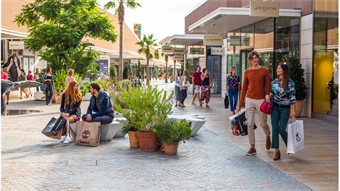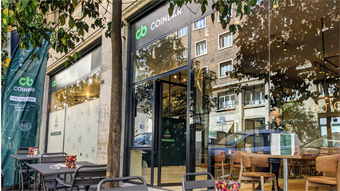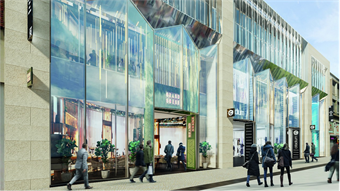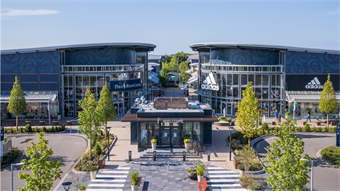Redevco commits to ambitious net zero carbon goals for 2040
- In Interviews
- 08:32, 05 December 2019
- 5758 Views
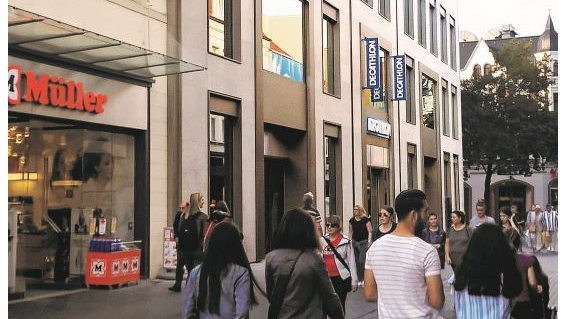
Pan-European real estate investment manager Redevco has made a commitment to make its entire portfolio Net Zero Carbon by 2040, an ambition encapsulated in the campaign ‘Mission 2040’. Clemens Brenninkmeijer, Head of Sustainable Business Operations at Redevco, explains what the company’s new sustainability goals entail.
How did Mission 2040 come about?
Mission 2040 is aligned with the World Green Building Council’s definition of Net Zero Carbon, which means, buildings that are highly energy-efficient with all remaining energy from on-site and/or off-site renewable sources. More than 30% of global energy consumption and carbon emissions occur through the built environment. We therefore believe that our sector has a responsibility to find solutions and reduce carbon emissions. Redevco wants to lead by example and show the industry what it means to act responsibly. It starts with us. We need to minimise our impact on the climate and the earth’s resources.
What steps are you taking to minimise Redevco’s impact on the environment?
In 2009, we set ourselves an ambitious target to reduce the CO2 emissions of our operations by 50% per FTE by 2020 and we are on track to achieve this. However, we figured out a while ago that greater benefits can be obtained by improving the environmental impact of our assets under management. For more than 10 years, we have been pioneers in the field of sustainability by certifying our assets according to the BREEAM In-Use methodology. BREEAM certification is not a goal in itself; we use it as a tool to measure the environmental performance of our buildings, set targets for improvement, and make deliberate investments to continuously upgrade our properties, thereby making them more future-proof. To date 84% of our assets under management by value are BREEAM-certified, and in 2018 we improved the ratings of 47 properties. We are well under way and have learned and achieved a lot, but we feel this is not enough. We want to accelerate and raise the bar.
How exactly do you aim to raise the bar?
We have selected four signature projects to demonstrate what Mission 2040 looks like, what is needed to make buildings net zero carbon and that our level of ambition is actually achievable. Furthermore, all our redevelopments will have to achieve a BREEAM Excellent rating. This higher ambition will stimulate our teams to build on our successful track record whilst maintaining a holistic view to pursuing positive environmental, social and financial impact. To work towards net zero carbon, we must first maximise energy efficiency by bringing down the energy use of our assets as much as possible through various building material-related measures as well as collaboration with our tenants. Next, we have already started to invest in on-site renewable energy generation where that makes sense.
If that is not an option, we will use green energy that is generated off-site. As a last resort we can offset any remaining emissions at portfolio level, but this is not our preferred choice. In essence, we will need to do everything possible to make the total carbon emissions of the buildings net zero.
How will Mission 2040 benefit Redevco’s own business?
All around us, initiatives aimed at creating a more sustainable built environment are gathering force. In our home market the Netherlands, two of the country’s banks have said they will no longer finance any properties that do not meet certain sustainability criteria.
The Dutch government has introduced legislation for all office buildings in the country to have an EPC label with a minimum level of C by 2023; non-compliant offices will no longer be allowed to be rented out or sold until improved to label C or better. Similarly, in the UK, all commercial real estate must already have an EPC label of E or better (i.e. F- or G-rated buildings may not be leased out or sold in principle). We believe that legislation will, if anything, get even tougher. A carbon tax, for example, is on the horizon in many countries and we believe all these developments will have a direct impact on risk perception and therefore on yields.
By making our buildings carbon-neutral, we are making them more sustainable and reducing the long-term risk of future obsolescence. A carbon-neutral building should be more valuable than one that is not, so these efforts will translate into a higher monetary value in the future. We think it’s better to be ahead of the curve and proactively plan for the requisite capex spend sooner rather than later.
Do carbon-neutral or carbon-positive buildings command a premium in terms of prices?
Today there is little or no consistent evidence that investors are paying premiums for a more sustainable building, at least not in the retail real estate sector. I believe it is more prevalent in the office sector. In any case, I believe that valuers should start to build in discounts or capex adjustments on anything that doesn’t have a good profile in terms of sustainability.
What is being done to address this imbalance?
At present, there is not enough data in the right hands to create reliable and relevant benchmarks that can be worked into valuations and a variety of different standards exist as to what is considered a sustainable building. We need to collaborate more and share data to create greater transparency. It doesn’t help that for many occupiers, energy consumption is not high on their own sustainability agenda.
Their energy bill may account for only 1-2% of total operating costs, while the rest goes to personnel and rent. But we have a responsibility to decarbonise the built environment and reduce energy consumption. Our planet is getting hotter and every little contribution counts, so every energy efficiency measure will make a difference, even if it does only make up a very small part of operating costs. We also don’t need to reach 100% in one go. There needs to be a growing realisation that you can go for 50 smaller initiatives to get to that same target and that accumulation will have an impact.
How can landlords encourage tenants to take up the gauntlet?
We need to find better ways to demonstrate successful examples that work, share them with others in the market and keep pushing the message to encourage everyone else to take part as well. We also need to demonstrate to our tenants that these measures will have an impact on the bottom line. If they can generate a 5-10% saving on their operating costs, other things being equal they will then by definition be trading more profitably from their store, which in turn has value for the landlord in terms of their ability to consistently pay the contractual rent and/ or ability to trade from that location for longer. We need to find the right way to link less emissions to lower risk, or put differently, to a higher value of a building.
What do you say to landlords who baulk at the high capex requirements of greening their buildings?
I fundamentally disagree that sustainability is a cost and I think we are seeing an increasing understanding in the investment market that although it might be a challenge, it is definitely an opportunity. It’s about reducing the longer-term risk of obsolescence. Measuring the carbon impact of operations is a good first start and maybe the use of a proxy for sustainability can help, for example an energy performance or a BREEAM certificate. It doesn’t really matter what it is, as long as we can make a link between sustainability and value. I believe that financial incentives will determine how fast we move forward, both on the equity and debt side.
How can financiers help?
We have a massive challenge to reduce carbon emissions in the built environment and not just new builds. In volume terms, even more existing stock needs to be retrofitted and that has to be funded. If debt providers were to find ways to stimulate that, by reducing the cost of loans for greener buildings, they would be encouraging landlords to make the right choices.
Do you also see a role for real estate industry bodies?
Definitely. Parties like RICS need to be on board to help to create greater transparency and understanding of how carbon-neutral or positive performance can be directly linked to value. This will not lead to an overnight change in existing valuation methodology, but if bodies like RICS were to succeed in helping the industry to build a robust and transparent methodology that incorporates sustainability factors, investors would be able to make more strategic choices. Over time, I am convinced this will translate into higher transaction prices and values.
Why is Redevco so keen to be a pioneer in the field of sustainability?
Throughout our existence as a company we have constantly demonstrated our leadership in this area, and we are determined to still be in that position in 2040.
Case study
In early October, Redevco announced it has received a BREEAM Excellent rating for its retail property in Bielefeld, Germany, which has been transformed from an outdated ‘Big Box’ department store into a fully-let multi-use asset. The rating was in line with the BREEAM DE New Construction standard which was introduced in Germany in 2018 and has since replaced the BREEAM International New Construction system, which had been in use since 2008. Apart from the Bielefeld property which Redevco manages, only four other buildings in Germany have been rated BREEAM ‘Excellent’ since 2008 – and one of them is the in-house development ALEA 101 at Alexanderplatz in Berlin, which is also part of the Redevco portfolio.
Business in balance
Redevco is celebrating 20 years in business this year.
The company can look back at many highlights and it is especially proud of having advanced the topic of sustainability within the organisation and across the retail real estate industry in Europe. Redevco is a longterm player, and in this context, our motto ‘Business in Balance’ has been a key driver in what we do as a company and how we do it.
Redevco is convinced that it is possible to do business in such a way that people and planet will not be negatively impacted but actually benefit from Redevco’s activities which are also profitable at the same time, notes Clemens Brenninkmeijer, Head of Sustainable Business Operations.
‘There are many challenges, and one of them is transforming the entire real estate industry, in terms of mindset and in terms of how we operate our businesses.
Making a business case for sustainability, one that also ticks all the financial boxes, requires all stakeholders to look at the value of future-proofing existing buildings differently, to start incorporating circular thinking in building construction, maintenance and operation, and to be willing to make an investment that will only prove its value in the longer term.’ Investing sustainably is a combination of three things, he adds.
‘It starts with selecting the right location, which Redevco considers future-proof if it is a place where people want to live, work and play, now and in the future. For example, it should be well-connected in terms of public transport and promote well-being through good architecture and local facilities that encourage place-making and a sense of community (such as gyms).
Secondly, the property should ideally have zero negative environmental impact, be flexibly built with the right kinds of materials and have the ability to accommodate alternative uses over time. And finally, the lease agreements between ourselves and our tenants should allow both parties to operate the asset as sustainably as possible.’
As the evidence for climate change is growing and the consequences are becoming increasingly evident, more and more institutions, governments and companies are putting sustainability higher on the agenda, he adds. ‘Fortunately, we see a pull factor emerging in the investor community.
Our joint venture with PGGM, the Dutch pension fund provider, is a perfect example of that. Our cooperation is based on the commitment that the carbon footprint of this particular portfolio will be reduced to net zero by 2030.’


